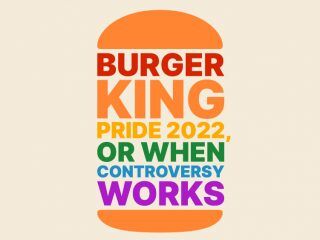At some point – after you work out brand purpose, but before you work out who that brand is speaking to – marketers have to make a choice.
Are you marketing to individuals or to wholesalers?
Both are about connecting with consumers. Both are about making sure to bring your brand forward in the best light.
Both are about building trust and connection and a lifelong brand relationship.
Logic tracks that it, therefore, must be the same – if both are about speaking to X consumer, in Y kind of way, the answer should be Z, regardless of what else happens in between.
That’s where people tend to stumble.
Marketing to consumers and marketing to wholesalers are about more than selling.
Here’s why.
- D2C vs marketing to wholesalers: Definition
- Direct to consumer VS wholesale marketing: Differences
- Wholesaler marketing or D2C marketing?
- Direct to consumer vs wholesale marketing: Dos and Don’ts
- Don’t: Use the same strategy for marketing to wholesalers and D2C
- Do: Invest in audience research
- Don’t: Communicate by rote
- Do: Work on your branding
- Don’t: Panic over quiet periods
- Do: Put your heart into your content
- What if I can’t market directly to consumers?
- Does wholesale vs direct to consumer matter?

D2C vs marketing to wholesalers: Definition
Say your brand sells stationery. You’ve got a new influx of custom-made pens that you want to push to your consumers.
Who are you talking to to sell them?
Wholesale marketing, or business-to-business, is if you spoke to another organisation to sell wholesale, such as a stationary shop or an office supply store. D2C, or business-to-consumer, is you speaking directly to individual customers.
You can do both.
You can sell to big businesses and to individuals*, but to start with, you need to understand where the differences between them are.
* caveat: some industries, such as healthcare and medicine, cannot sell directly to individuals and rely on intermediaries such as shops and agencies to sell their products.

Direct to consumer VS wholesale marketing: Differences
1. Pricing
Brands that sell to wholesalers sell big quantities of their product to another company. They’ll have multiple pricing tiers depending on the quantity sold, the product, and whether or not the customer qualifies for a discount.
D2C brands have one price for everyone. Normally, products are sold in small batches.
2. Customer service
Brands that market to wholesalers have a dedicated account manager per account, who can isolate and fix any issues before it becomes a concern for the consumer.
D2C brands have a customer service team to help every consumer.
3. Customer relationship
Wholesale marketing brands rely on strong customer relationships. When they market, they’re marketing to the individual that is in charge of that particular brand account, so the focus is on building connection to that client.
D2C brands market to a spectrum of clients within different industries, but the focus might be on the product – and what it will add to their client’s life – rather than on the client itself.

Wholesaler marketing or D2C marketing?
With some exceptions, you should have a strategy for both.
A general rule to keep in mind is that your brand will have people who want to buy your product both ways: as an organisation, and as an individual consumer, so it isn’t a case of deciding to put all your marketing eggs in the wholesale marketing basket and hoping for the best. Eliminating a direct to consumer faction in favour of wholesale marketing doesn’t sharpen your focus: it diminishes it.
So have both. Work on both.
But treat them as separate entities when it comes to planning.

Direct to consumer vs wholesale marketing: Dos and Don’ts
Don’t: Use the same strategy for marketing to wholesalers and D2C
No matter how much overlap there is between your wholesale and D2C audiences, you can’t really market your product successfully using the same strategy for wholesale and D2C. Both wholesale and D2C audiences have completely different wants and needs, and for your product to fit seamlessly into their life, you need to tell them how your product addresses that need.
For D2C, that might mean investing in influencer marketing or hosting annual sales.
For wholesale, it could be finding a solution to a problem that every organisation has, no matter how big: difficulty managing their email subscriptions, working out how to manage projects.
Both will address your client. Both will propose a solution.
But the way in which they address that client and propose that solution are going to be what hooks your client.
Do: Invest in audience research
If you haven’t started researching your audiences yet, stop what you’re doing and go back to the drawing board.
Knowing your audience is the background of any successful story. Without knowing what your audience reacts to – what they like and dislike, what they consider fundamental and what they absolutely hate to think about – you have a story that won’t hit all the right marks.
And yes, if you’re marketing to an organisation, you still need to do audience research.

Don’t: Communicate by rote
It’s 2022.
We’ve moved past the time of mass communication. To get anywhere – especially in wholesale marketing- you have to communicate to humans.
Wholesale marketing already has a communication problem. There’s the idea that, because you’re communicating to big businesses, you don’t need to put effort into your communication; that if you sell your product on ROI alone, it’ll be enough.
We don’t believe it is.
There are products on the market that will be able to outperform yours, but if you have a good enough relationship with the client, that might not matter.
Do: Work on your branding
A good brand can smooth out a lot of problems.
And that goes for both wholesale and D2C marketing.
A brand your clients can trust is going to make a difference in the kind of revenue you take in, so before you decide who you’re talking to, decide what you’re going to say, how you’re going to say it, and where your brand stands on issues that every customer has to deal with. This is another place where audience research will come in handy, so don’t hesitate to really go wide-reaching with it and build a brand persona with personality.
Wholesale is insanely competitive. Putting your brand on the last step for importance is not going to do anyone any favours, least of all yourself.

Don’t: Panic over quiet periods
Both wholesale and D2C marketing will experience a lull in demand.
The only difference is that wholesale lulls are a little harder to get over. With wholesale, where the order volume will be much lower to begin with and much less frequent, a lull in activity is going to happen sooner or later – and usually right when you really don’t need the extra hassle.
That said, wholesale marketing lulls are normal. What you shouldn’t do is to take them as a sign that something is wrong and start implementing rapidfire measures to try and fix a problem that might not be a problem.
Do: Put your heart into your content
Your content is what’s going to make you stand out, so when in doubt: make more content.
This is a long game. You might not see the returns on your content as fast as you like, but you are going to see returns – and this is especially true for wholesale marketing. Making high-quality content available for free, on top of your normal product offering, is a good way to make sure that your name is what’s circulating in wholesale marketing circles.

What if I can’t market directly to consumers?
Find an intermediary that fits best with your company culture.
There are some companies that can’t do their own selling. Whether it’s a protected product, like medicine, or something that’s so specific and niche that you need someone else to stock it for you, intermediaries can make your life a lot easier. Connect to your best shot using email, personalise your content, and have someone else handle selling your product. In the long run, you’ll reap the benefits.

Does wholesale vs direct to consumer matter?
Yes, but not in the way that you think it does.
Fundamentally, both wholesale and consumer marketing are the same: regardless of the outcome, you are addressing an audience with a solution to their problem, or a product to fill in a particular need in their life.
Where wholesale and consumer marketing differ is how you approach your audience, and what you do in between buying periods. Both require audience research. Both require excellent content. Both require addressing your audience as humans, not as machines in charge of making purchasing decisions.
Both need completely different strategies, but the steps to create a good marketing strategy for wholesale marketing and direct to consumer marketing don’t change.
Know your audience.
And create content that people come back for.




